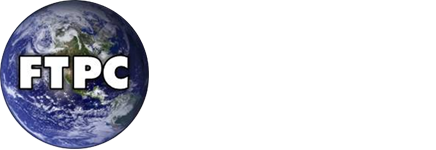About Foreign Trade Zone #214
South Eastern North Carolina (SENC)
A Foreign Trade Zone, or FTZ, is like a “duty free” zone for businesses. FTZ is described as a geographical area at or near a U.S. Port of Entry where commercial merchandise is treated by U.S. Customs as if it were “outside the commerce of the United States.” The growth in global trade and the need to level the competitive playing field on taxes has accelerated the use of trade zones. This is important for several reasons, including:
- Merchandise held in the Zone is not subject to Customs duties and other ad valorem taxes. Inbound foreign goods can come into the Zone for storage, distribution, assembly or manufacture without paying Customs duties for as long as the goods stay in the Zone.
- Utilizing an FTZ can significantly reduce the inbound costs of foreign goods from Customs entry fees, duties, taxes and tariffs. Such costs can range from 2% – 20% (and up) of the value of the goods.
- There is a duty exemption on “re-exports;” that is, goods brought into the FTZ for manufacturing and which are then exported to another country never pay US Customs duties.
- Manufacturing importers also save by not having to pay duties on waste, scrap, and yield loss during the manufacturing process, thus reducing the total amount of imported goods that are taxed.
- Avoid inverted taxes. Some component items or raw materials imported to the U.S. are assessed a higher duty rate than import of a finished, manufactured product containing those components. This creates an “inverted tariff” when the duty rate for the overall finished good is lower than the duty rate of its imported component parts. An importer having manufacturing authority within an FTZ is allowed to admit their components into the zone duty free, manufacture the finished goods, and then pay duties on the foreign contents of the finished goods at a lower duty rate. The importer altogether avoids paying the higher duty rate on the component parts, and then gets to defer the lower duty payment on the value of the foreign content in the manufactured goods until the goods leave the FTZ. Only by operating in an FTZ can the U.S. manufacturer pay the lower tariff rate for the final manufactured product (which is zero in many cases) and completely eliminate the import costs associated with importing raw materials and goods.
Alternative Site Framework (ASF) is a new Federal law that adds flexibility for companies wishing to participate in an FTZ, by providing an easier and faster way to add new zone operations. The ASF allows NC the ability to grant trade zone sites within a larger SENC zone in less time and with more flexibility for companies seeking a site location best suited to their individual business.
There are over 230 FTZs in the United States. Foreign Trade Zone #214 is located in South Eastern North Carolina (SENC) and offers individuals and businesses in 24 NC counties the opportunity to import foreign goods into a duty free zone. The NC Department of Transportation oversees FTZ #214 SENC.
To start importing foreign goods into SENC, a business can either:
- Use an existing Magnet site or
- Apply to be a Usage Drive site
Magnet sites are essentially the same as the current general-purpose zone industrial park sites with a warehouse operator that has already been approved within FTZ #214. A Magnet site can be used by many importers. “Usage-Driven” sites are managed by individual companies that commit to operating within the inventory and reporting requirements of U.S. Customs, after approval by the Foreign Trade Zones Board. “Usage-driven” sites are able to be approved in approximately sixty (60) days. The map below shows the 24 counties which are included in FTZ #214 SENC.

Businesses interested in becoming a site within FTZ #214 SENC, or simply in learning more about FTZ opportunities, should contact FTZ #214 SENC Administrator V. Lori Fuller at (919) 707-2815 or vlfuller1@ncdot.gov.
